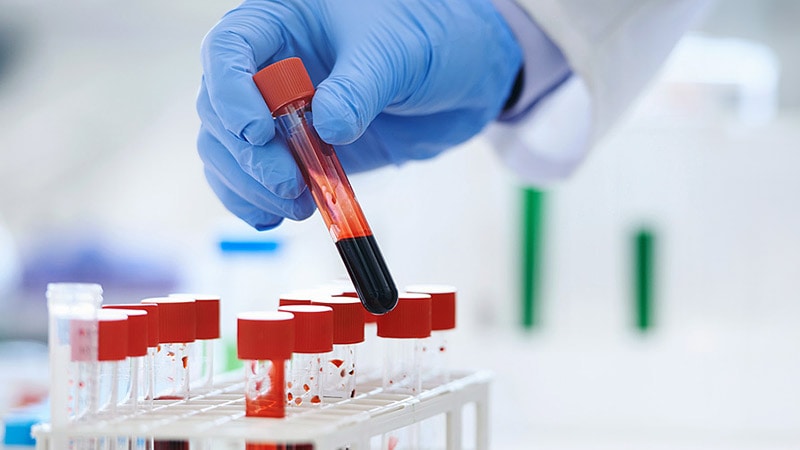Optimizing Therapy Choice in Advanced NSCLC Through Biomarker Testing
Core Concepts
Biomarker testing in advanced NSCLC leads to better patient outcomes and should be a standard practice.
Abstract
TOPLINE:
Biomarker testing in advanced NSCLC crucial for optimal treatment outcomes.
Study reinforces the importance of comprehensive genomic profiling before therapy.
METHODOLOGY:
ALK and EGFR biomarker testing underused despite guidelines.
Patients benefit from precision oncology with proper biomarker testing.
Study analyzed outcomes of patients based on biomarker test results.
TAKEAWAY:
Optimal group had better outcomes with comprehensive genomic profiling.
Optimal group had longer time to next treatment and treatment discontinuation.
Suboptimal group experienced higher rates of adverse effects post-therapy.
IN PRACTICE:
Treatment based on genomic profiling leads to improved health outcomes.
Recommendations support tailoring NSCLC treatment to patient's biomarkers.
SOURCE:
Study led by Adam C. Powell, PhD, published in the Journal of the National Comprehensive Cancer Network.
LIMITATIONS:
Lack of patient medical records and disease stage categorization.
Possible inaccuracies in diagnosis codes and reasons for suboptimal treatments unknown.
DISCLOSURES:
Study funding undisclosed, authors affiliated with Guardant Health and Payer+Provider Syndicate.
Biomarker Testing Optimizes Therapy Choice in Advanced NSCLC
Stats
78% of patients received optimal therapy, 22% received suboptimal treatment.
53.6% in optimal group had comprehensive genomic profiling tests vs 20.3% in suboptimal group.
Median time to next treatment: 11.2 months (optimal) vs 4.4 months (suboptimal).
Median time to treatment discontinuation: 10.4 months (optimal) vs 1.9 months (suboptimal).
Emergency department visits: 0.76 (optimal) vs 1.27 (suboptimal).
Outpatient visits: 22.9 (optimal) vs 42.7 (suboptimal).
Quotes
"These findings suggest that treatment concordant with [comprehensive genomic profiling] findings is associated with better health outcomes."
Key Insights Distilled From
by Deepa Varma at www.medscape.com 01-19-2024
https://www.medscape.com/viewarticle/biomarker-testing-optimizes-therapy-choice-advanced-nsclc-2024a10001i9
Deeper Inquiries
How can healthcare systems improve the adoption of biomarker testing in NSCLC patients?
Healthcare systems can improve the adoption of biomarker testing in NSCLC patients through several strategies. Firstly, education and awareness campaigns targeted at healthcare providers, patients, and caregivers can highlight the importance of biomarker testing in guiding treatment decisions and improving outcomes. Additionally, integrating biomarker testing into clinical practice guidelines and pathways can standardize its use and encourage widespread adoption. Streamlining the testing process, ensuring accessibility, and reducing barriers such as cost can also facilitate increased uptake of biomarker testing in NSCLC patients. Collaborations between healthcare institutions, laboratories, and payers can further promote the integration of biomarker testing into routine care, ultimately optimizing therapy choices and enhancing patient outcomes.
What are the potential implications of inaccurate diagnosis codes on treatment decisions?
Inaccurate diagnosis codes can have significant implications on treatment decisions for patients with NSCLC. Misclassification of patients based on inaccurate diagnosis codes may lead to inappropriate treatment selection, resulting in suboptimal care and potentially compromising patient outcomes. Healthcare providers rely on accurate diagnosis codes to determine the most appropriate treatment strategies, including the use of targeted therapies based on biomarker testing results. Inaccurate coding can also impact reimbursement, resource allocation, and quality reporting, affecting the overall delivery of care. Therefore, ensuring the accuracy of diagnosis codes is crucial to facilitating personalized treatment approaches, optimizing therapy choices, and improving patient outcomes in NSCLC.
How can patient outcomes be further improved beyond genomic profiling in cancer treatment?
While genomic profiling plays a crucial role in guiding personalized cancer treatment, patient outcomes can be further improved through a comprehensive and multidisciplinary approach. Beyond genomic profiling, integrating other biomarkers such as proteomic, transcriptomic, and immune markers can provide a more holistic understanding of the tumor biology and potential treatment responses. Implementing multidisciplinary tumor boards where experts from various specialties collaborate to discuss individual cases can help tailor treatment plans to each patient's unique needs. Additionally, focusing on supportive care, symptom management, psychosocial support, and survivorship programs can enhance the overall quality of care and improve patient outcomes. Emphasizing patient education, shared decision-making, and ongoing monitoring can also contribute to better treatment adherence, response assessment, and long-term outcomes in cancer treatment. By combining genomic profiling with a comprehensive care approach, healthcare providers can optimize therapy choices, address patient needs holistically, and ultimately improve outcomes for patients with cancer.
0
